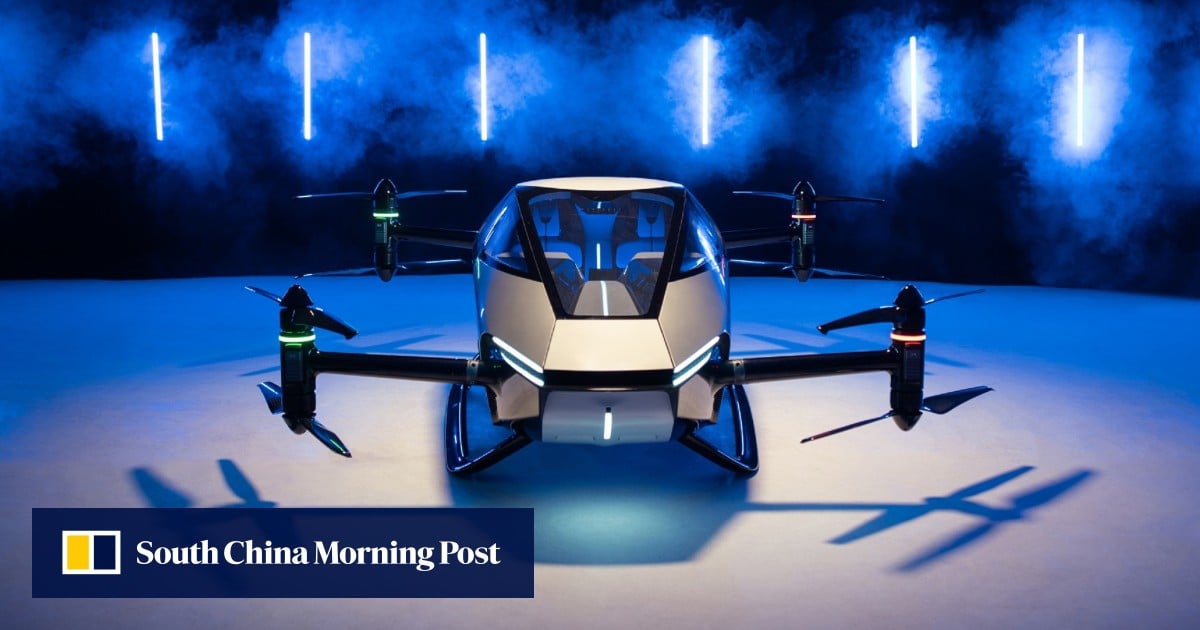


However, it did not reveal an exact time frame for the launch of its flying car, nor did it provide a price range.
AeroHT began developing its flying car a decade ago. On Thursday, He told a media briefing at Auto China 2024 in Beijing that the so-called electric vertical take-off and landing (eVTOL) vehicle, or drone, would enrich people’s lives as it would provide an additional option for public transport and enable passengers to avoid traffic gridlock.
“The low-altitude air travel business has big potential for growth,” he said. “In China, in particular, its business outlook is bright amid the development of the future of mobility.”
Urban air mobility focuses on aerial connectivity in and around cities. Unlike many of its rivals that are aiming for corporate customers, AeroHT said it would target individuals and explore efficient, safe and carbon-neutral mobility solutions that go beyond EVs.
In March, the flying car start-up announced its AeroHT Voyager X2 had completed a low-altitude flight in the central business district of Guangzhou.
“Institutional investors and rich consumers will show keen interest in the drone-like cars as urban air mobility is a brand new notion in the transport sector,” said Ding Haifeng, a consultant with Shanghai-based financial advisory firm Integrity.
Chinese EV maker shows off flying car but admits urban use is far off
“Government support is also important for the industry’s future growth. Fortunately, transport and other relevant authorities are taking a positive stance on the urban air technology and its business model.”
Last month, Beijing designated Guangzhou, the capital of Guangdong province, an economic powerhouse in the south, as a base for the industry.
Nansha, a district in Guangzhou, was picked to develop a citywide management system for unmanned vehicles as well as industry standards for a “low-altitude economy”, according to a document published by the National Development and Reform Commission, China’s top economic planner.
Last week, AeroHT signed a preliminary agreement with the district government of Panyu, another part of Guangzhou, to jointly construct take-off and landing sites for flying cars.
Xpeng Robotics, which designs and develops robots, envisions its products taking over more housework in the future and interacting with humans at an emotional level.
AeroHT and Xpeng Robotics are both part of an ecosystem created by He to tap a further digitalised world in the future.
A raft of start-ups are developing flying cars, betting on the future of mobility being at least partially airborne.
Chinese start-up AutoFlight sets new distance record for ‘flying car’
Lilium, a German company, completed fundraising of US$830 million in a special purpose acquisition company (SPAC) deal on the Nasdaq stock exchange in 2021.
American electric air taxi start-up Joby raised US$1.6 billion in another SPAC deal the same year.